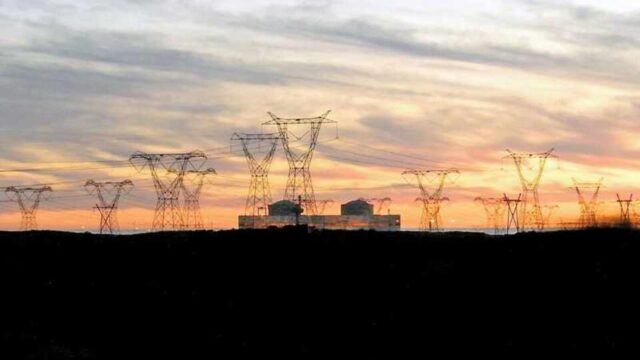It’s estimated that load shedding can cost South Africa over R4 billion a day. This can be devastating for small businesses.
Johannesburg – Starting an entrepreneurial venture is a daunting task.
The challenges of running a business test your mettle as a person, leader and strategist. Doubt will set in from time to time, leaving you questioning your decision to start a business.
Once you feel like you have all your ducks in a row, new obstacles will arise in the form of competitors looking to give you a run for your money
For those who make it and manage to build successful businesses, the rewards make all the hardships worthwhile.
In South Africa where it has long been said that entrepreneurship is the proverbial tonic to cure our unemployment woes, it has been especially difficult for business people to start and maintain thriving businesses.
The tough economic landscape, coupled with unprecedented incidents of load shedding, has made the already tricky entrepreneurial journey all the more difficult.
Load shedding has been a key factor in the closing of some prominent and popular small businesses in 2022.
In June, Stage 6 load shedding was implemented for the first time this year. It would be the death knell for the popular burger joint Buns Out in Linden, Johannesburg.
With heavy heart today we announce the closing of our linden store. Our last day will be on the 9th of October and we will be having a huge send off! See you there 😘 pic.twitter.com/Tvow2KoCRw
— Buns Out Burgers (@BunsoutL) September 27, 2022
The business was founded by Tom Savage and media personality Maps Maponyane,
Savage highlighted the difficulties the business had faced over the past few years because of Covid-19, saying load shedding had compounded their problems.
The constant power outages made it increasingly impossible to continue trading.
“It’s been tough. It’s been a struggle ever since Covid and we’ve survived through various bouts of load shedding, but we’ve never been able to find a proper operation with generating capacity and have gas grills, and electric grills, and fryers and freezers.
This last bout of load shedding has been going for three to four weeks and when we got put into Stage 6, it was like a nail in the coffin,” Savage said.
“It’s not to say that we couldn’t keep going, it’s a question of like ‘do we want to keep going?’ when it’s a fight every day to get through, to get to the other side, to make ends meet,” said Savage.
Another businessman who saw his prospects heavily affected by stage 6 load shedding was entrepreneur and restaurateur Angelo Zachariades.
He took to Twitter to express his frustration with the continual and lengthy power cuts.
So when our new restaurant opens and we have stage 5 loadshedding over a weekend our generator will be running for 8 hours a day using say 9l of diesel an hour = 72l a day at say R25 a litre = about R1800 a day
How? How are we supposed to operate like this
— Angelo Zack (@OldManZack) September 17, 2022
Factoring in the fuel price at the time, according to Zachariades’s calculations, he could find himself spending R1,800 or more a day on diesel just trying to keep his doors open, a situation he saw as untenable.
“It’s got to the point where it is almost impossible. Unless you don’t have any borrowings from the bank, you can’t afford the kind of additional costs that load shedding brings” he said.
Zachariades was in the process of setting up a new restaurant at the time and lamented the cost of installing a generator at his new business.
“Because it’s a stand-alone restaurant and not in a shopping centre we have to get our own generator, which is going to cost between R220,000 to R250,000. It uses approximately nine litres of diesel an hour and at R25 a litre you can work out how much diesel you’re going to use a day over eight hours,” said Zachariades
Stage 6 load shedding has undoubtedly affected many small businesses but Themba Limekhaya’s story has a silver lining to it.
Limekhaya started his pizza-making business, Mkhukhu Pizza, from his shack in the township of Orange Farm to stave off poverty. He began making pizza using an electric stove.
There was an overwhelming response from the public to Limekhaya’s culinary exploits from the social media community, in particular, Facebook.
“People come from as far as Midrand and Centurion to support my business. Others come with business proposals, wanting to buy shares in my business and things like that,” he said.
However, Stage 6 load shedding almost put paid to his dreams.
“Even now, I am unable to promote or advertise my pizza as much as I would like because I know load shedding is a problem. So people come here looking for food, and I look unprofessional because I can’t give them what they want,” he said.
Limekhaya’s plight touched the hearts of some IOL readers, with some offering advice and possible solutions.
One reader, Marie Durandt, of the Noupoort in the Karoo, read about Limekhaya and his shack pizza business and decided to step in and help. She bought him a braai pizza oven.
“Marie, from the Northern Cape, sent me this pizza braai and I’ve been learning how to use it. It’s very quick. It’s really made things better, so when there is no power, at least I can still get orders out. People were tired of hearing me say there is no pizza when there is no power,” said Limekhaya.
@mkhukhu22
With Eskom indicating that load shedding will not abate any time soon it is clear that entrepreneurs and small businesses will need to find creative and innovative ways to reduce their dependence on Eskom if they are to make it through 2023.
IOL Business








